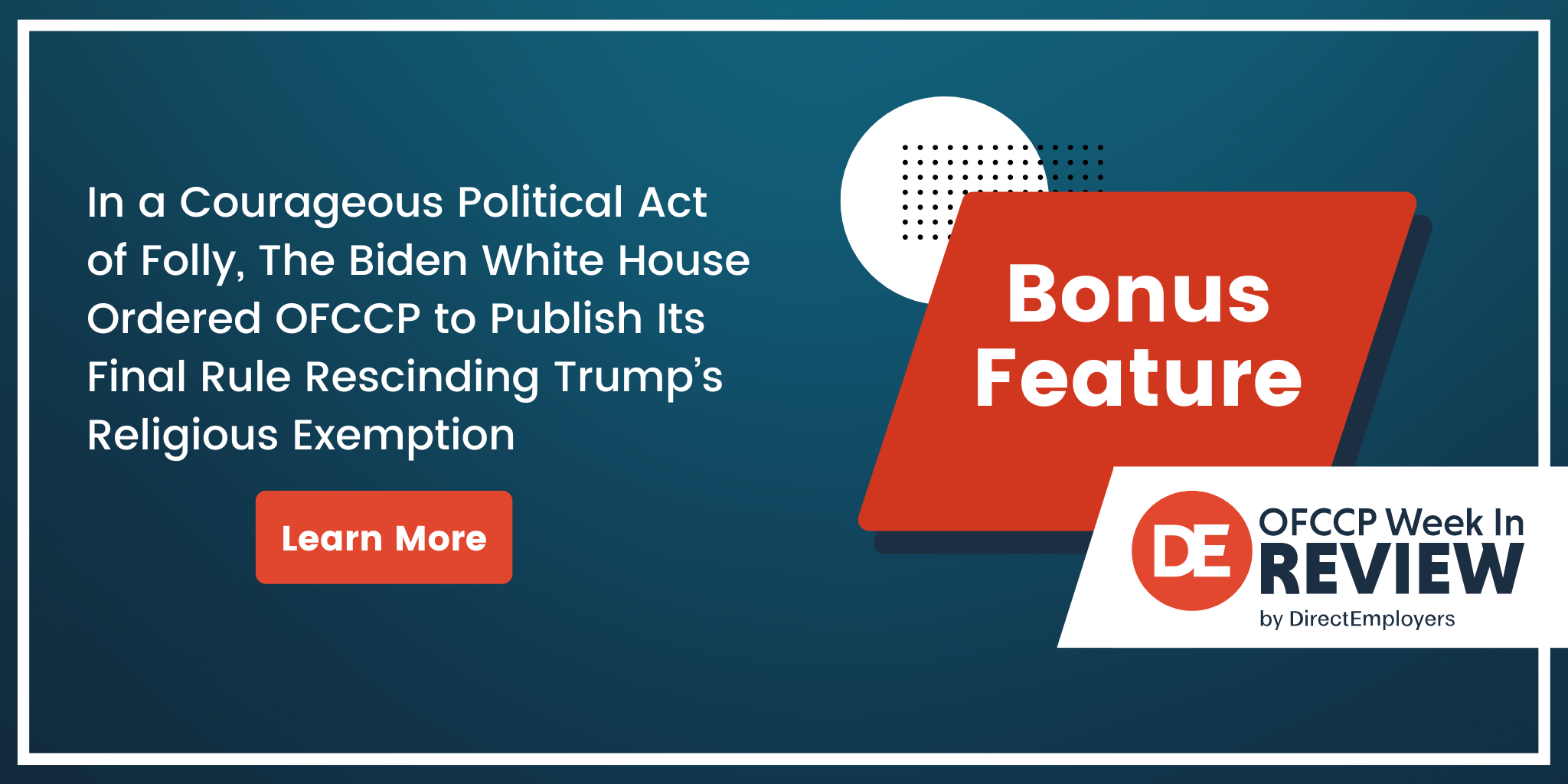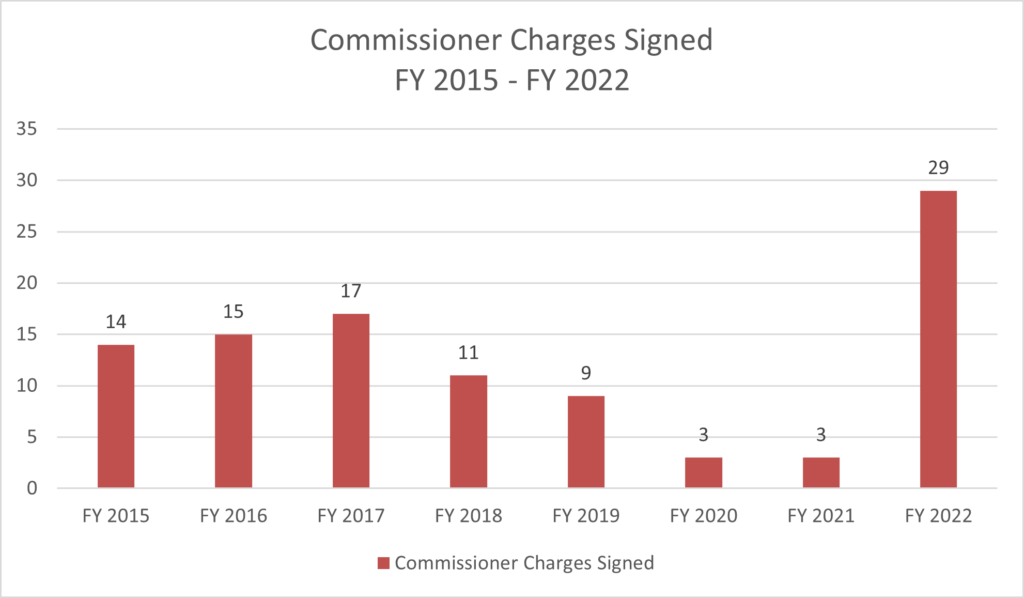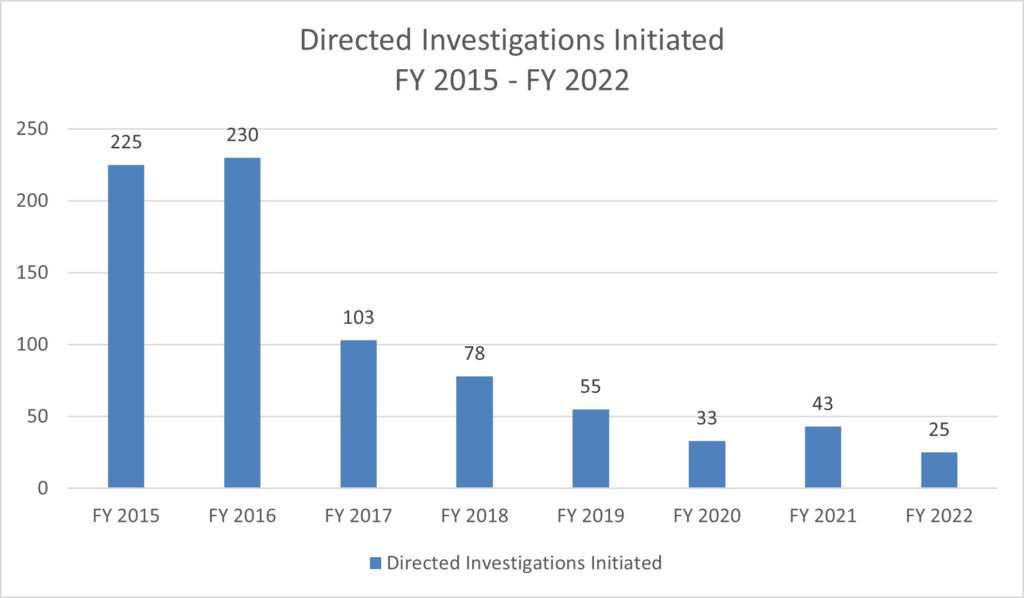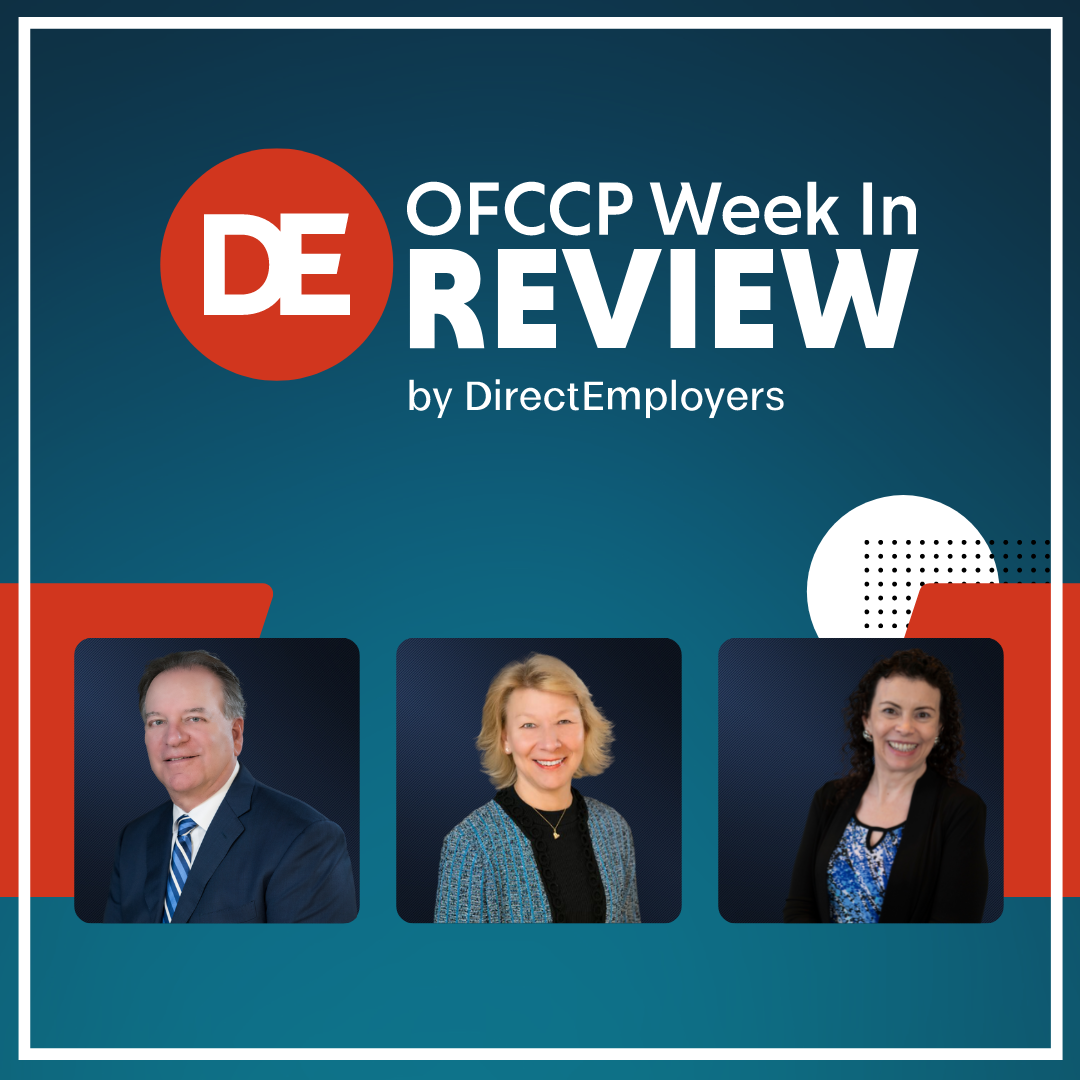
- NLRB Advice Memo: Workplace Discussions of Racism Are NLRA-Protected Concerted Activity (Even for Non-Unionized Employees)
- Amid Political Controversy, President Biden Announced He Will Nominate Julie Su for Labor Secretary
- New DE Talk Podcast Discussed How Veteran & Military Spouse Hiring Fits into DEIA Plans
- In a Courageous Political Act of Folly, The Biden White House Ordered OFCCP to Publish Its Final Rule Rescinding Trump’s Religious Exemption
- Three Town Halls on Initial Proposals to Overhaul Federal Race & Ethnicity Data Collections Announced
- U.S. EEOC Revealed Big Jump in Commissioner Charges in FY 2022
- DirectEmployers Member Engagement Team Earns Bronze Award for Customer Service During 2023 Stevie Awards for Sales & Customer Service
- In Brief
- Looking Ahead: Upcoming Date Reminders
Monday, February 27, 2023: NLRB Advice Memo: Workplace Discussions of Racism Are NLRA-Protected Concerted Activity (Even for Non-Unionized Employees)
Tweets Discussing Case Also Protected
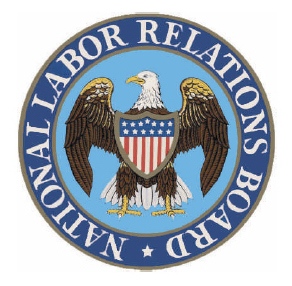
The memo discussed the case of Kaiser Permanente Bernard J. Tyson School of Medicine (KPSOM) (NLRB Case No 31-CA-277349). In that case, a physician claimed that – just nine hours after she facilitated a small group discussion session on racially disparate treatment of Black patients in medicine – KPSOM administration discharged her from her teaching duties, pending an investigation into her classroom activities. Following the investigation, the Kaiser Medical Group reinstated her as a clinical physician, but KPSOM did not reinstate her to the faculty. Moreover, following her Twitter posts about the situation, she claimed KPSOM further retaliated against her by reversing its offer to extend her contract and by permanently discharging her. The physician and the medical school settled the case in January 2023.
Both the Group Discussion & Tweets Were Protected Concerted Activity, per Memo
Section 7 of the NLRA guarantees employees “the right to self-organization, to form, join, or assist labor organizations, to bargain collectively through representatives of their own choosing, and to engage in other concerted activities for the purpose of collective bargaining or other mutual aid or protection,” as well as the right “to refrain from any or all such activities” (see 29 U.S.C. § 157). Section 8(a)(1) of the NLRA then works hand-in-glove with Section 7 by making it a ULP for an employer “to interfere with, restrain, or coerce employees in the exercise of the rights guaranteed in Section 7” of the Act (see 29 U.S.C. § 158).
In the Advice Memorandum, Brock noted that:
“because working to end systemic racism, including its impact on the Employer, inures to the benefit of all employees,” both the discussion and the physician’s tweets “were for mutual aid or protection.”
The classroom discussion involved issues of race in medicine broadly while also specifically addressing a then-recent email by the school’s Dean, which some parties believed indicated implicit racial bias and otherwise failed to address the issues of race faced by Black faculty and students, Brock noted. A fellow KPSOM employee was present for the discussion, which satisfied the Board’s current requirement that inherently concerted communications must involve a discussion between at least two employees, Brock concluded.
Turning to the tweets, Brock found that one of the physician’s tweets constituted concerted activity because it discussed the overall issues of race and racism in medicine (an inherently concerted activity), and the tweet asked people to “augment the marginalized” and “[e]nd racism in medicine” by speaking out. Critically, in Brock’s view, the tweet asked people to retweet the physician’s message and augment their own voices, thereby inducing others to group action.
“It is immaterial that there is no evidence that any of the Charging Party’s co-workers interacted with the tweet” Brock concluded because statutory employees engaging in concerted activity include any employee, and is not limited to the employees of a particular employer.
Brock advised that the second tweet also involved concerted activity for mutual aid or protection because it was implicitly inducing others to group action and it asked others for assistance to obtain a remedy. Moreover, although the tweets discussed the medical school’s actions against an individual, they were not “mere griping” because they contemplated future group action.
Tuesday, February 28, 2023: Amid Political Controversy, President Biden Announced He Will Nominate Julie Su for Labor Secretary
Operational Competence Questioned
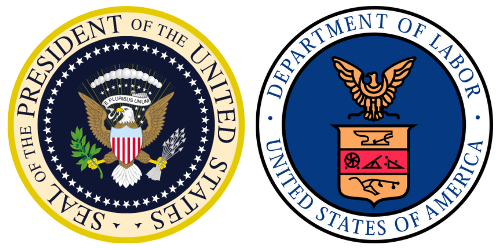
If the Senate confirms her nomination, Su would be the first Asian American to serve in a Secretary-level role in Biden’s Cabinet (although she would be the second Asian American to hold the Secretary of Labor position: Elaine Lan Chao, wife of Senate Minority Leader Mitch McConnell, was the 24th Secretary of Labor (nominated by George W. Bush and served in that role for the entirety of his Administration 2001-2009. That also made Secretary Chao the first Asian-American woman to serve in a Presidential Cabinet. Secretary Chao then repeated that feat in the Trump Administration as the 18th Secretary of Transportation.)
Before joining the Biden administration in July 2021, California Governor Gavin Newsom (D) had appointed Su on January 11, 2019 to be the California Secretary of Labor leading California’s Labor and Workforce Development Agency. However, great controversy broke out two years later over the many losses in California’s Unemployment Insurance fund during 2020.
As California’s Labor Secretary, Su admitted at the time that her department had sent at least $11 Billion in unemployment checks to thieves and scammers (including felons incarcerated in state and federal prisons in California receiving their “Unemployment” checks at the prisons). She also noted that the state of California and her Department was continuing to investigate another $20 Billion which several outside agencies had documented stolen but which the state was still examining.
A second controversy soon thereafter erupted when Ms. Su exercised her authority as the California Labor Secretary to stop the payment of UI benefits to everyone in the state of California while her Department took stock of what they were doing.
A third controversy then erupted when it was discovered that Ms. Su’s department had inadvertently contributed to the success of the thieves and scammers by terminating the contract of a key security firm her predecessor had retained to monitor UI payments and weed out and stop UI scammers.
After many months of investigation, here is what then California Labor Secretary Su said about the still unfolding investigations in January 2021:
“There is no sugarcoating the reality,” Ms. Su said during a Press Conference (almost at the very moment rumors began to swirl in Washington D.C. that she would soon be nominated to the number two spot at the U.S. Department of Labor in Washington D.C.) “California has not had sufficient security measures in place to prevent this level of fraud, and criminals took advantage of the situation.”
Note: Controversy also still reigns to this day as to the total amount of California’s loss as the state continues to investigate the possibility that it lost between $36 Billion and over $40 Billion to UI thieves/scammers on Ms. Su’s watch. (The most recent USDOL estimate now tops $40 Billion.)
Why Just Announce His “Intention to Nominate?
Many have asked: “Why did the President merely ‘announce his intention to nominate’ Ms. Su, instead of just nominating her?” ANSWER: This is a classic move in the controversial candidate Capitol Hill “nomination playbook.”
First, the President’s mention of his “intention” starts the conversation in the U.S. Senate which must confirm her after a Committee Hearing. This gives Senate Majority Leader Schumer (D-NY) both a chance to immediately hear any howls of objection from Democrats and to preliminarily “count votes.”
Second, the announced “intention” then buys some time for Senator Schumer’s office to go to work on Democrat naysayers to try to persuade them to vote for Ms. Su’s nomination, or seek to “log roll” them if they are dug-in in opposition. Is Manchin (D-WV) with him? Is Sinema (I-AZ) on-board? Are Democrat Pennsylvania Senators Fetterman and Casey sufficiently healthy to travel to Washington D.C. and appear in the U.S. Senate Chamber to answer “Yea” in response to a roll-call vote and then say “Yea” again when all Senators vote on the nomination on the Senate Floor?
Immediately following President Biden’s announcement of his “intention” to elevate Deputy Secretary Julie Su to the Secretary of Labor position, various politicians and advocacy groups (the “usual suspects”) jumped up in a well-rehearsed sequence to issue reaction statements (i.e. following the Capitol Hill nomination playbook). Here are links to some of those statements:
- President Biden’s additional remarks at a White House announcement event;
- Vice-President Kamala Harris’ statement;
- White House statement touting a “wide range of elected officials, labor leaders, and community advocates” in favor of the nomination;
- U.S. Secretary of Labor Marty Walsh’s statement;
- Senate Health, Education, Labor, and Pensions (HELP) Committee Chair Bernie Sanders’ (I-VT) tweet supporting the nomination;
- Senate HELP Committee Ranking Member Bill Cassidy’s (R-LA) statement opposing the nomination;
- House Education and the Workforce Committee (EWC) Chairwoman Virginia Foxx’s (R-NC) statement opposing the nomination;
- House EWC Ranking Member Bobby Scott’s (D-VA-03) tweet in support.
Tuesday, February 28, 2023: New DE Talk Podcast Discussed How Veteran & Military Spouse Hiring Fits into DEIA Plans
Conversations surrounding diversity, equity, and inclusion remain a focus in 2023 – but where do veterans fall into these plans, and how do employers keep them included in these discussions? Tune in as DirectEmployers Kim Lott and Denise Lewis of VetJobs get down to the heart of veteran diversity and share how these men and women who bravely served our country represent one of the most diverse hiring groups spanning culture, race, gender, disability, sexuality, age, nationality and more.
Listen to our DE Talk Podcasts via any of the options below and subscribe to receive updates whenever a new podcast is available.
Apple • Spotify • Google • Stitcher • iHeartRadio • Stitcher • TuneIn • Overcast • Pocket Casts • Castro • Castbox • Podchaser • RSS Feed
…or your preferred Podcast provider!
Wednesday, March 1, 2023: In a Courageous Political Act of Folly, The Biden White House Ordered OFCCP to Publish Its Final Rule Rescinding Trump’s Religious Exemption
What’s Really Going On Here Described In The Blog
This action to order the publication in Final form of OFCCP’s highly controversial Religious Exemption Rule was either one of the most courageous political acts I have seen a President take in recent years or was one of the most politically reckless. It seems unlikely that this Final Rule, which seems small in comparison to all the challenges currently afoot in the world and coming from this petite and obscure federal agency well-known to only federal government contractors, could play an important role in the 2024 Presidential Election, let alone dim the chances of President Biden to be re-elected. However, that is what is on the line with this merely symbolic Rule which changes nothing at the end of the day. Yet, OFCCP’s Rule pits President Biden against six of the major and influential churches in the United States as I discuss in the blog, below.
Note: As hundreds of commenters on the proposed Biden OFCCP Rule wrote, and as OFCCP agreed in its Final Rule (discussed below), the Trump OFCCP Rule was entirely unnecessary. The Trump OFCCP Rule attempted to merely restate Title VII law which originates with the federal courts and which interpretations are the exclusive province of the federal Courts. The Trump OFCCP Rule did not and could not alter Title VII law. It was a waste of time. Likewise, rescinding a useless Rule is an equally useless exercise. So, much wheel spinning has occurred here to make a symbolic statement, but nonetheless at a great political cost to Democrats.
Here is What Happened
OFCCP published in the Federal Register its Final Rule to rescind the Trump Administration’s December 8, 2020, Final Rule, “Implementing Legal Requirements Regarding the Equal Opportunity Clause’s Religious Exemption.” The Trump-era rule has been in effect since January 8, 2021. The new Final Rule – “Rescission of Implementing Legal Requirements Regarding the Equal Opportunity Clause’s Religious Exemption Rule” – will be legally effective on March 31, 2023. OFCCP also issued a new directive to rescind the Trump Administration’s August 2018 Directive (2018-03) on the religious exemption and also created a landing webpage regarding the rescission with links to the relevant documents and an FAQ.
After the Rule, the most important OFCCP writing was OFCCP Director Jenny Yang’s blog and the FAQ (since they both reveal what is really going on), discussed below. Director Yang’s blog and the FAQ set out the OFCCP’s interpretation of the result of its new Final Rule and describe how the OFCCP understands the religious exemption to Title VII to be 180 degrees opposite of the interpretation the Trump OFCCP (and EEOC) gave to it. So, while the new OFCCP Rule merely rescinds the Trump Final Rule, and there is no replacement Rule, OFCCP Director Yang has simultaneously orally announced a change in policy position to now cause claims of sexual orientation and gender identity discrimination to trump claims by federal contractors that Title VII’s religious exemption allows the discrimination and makes it lawful. But there is more, as we discuss below, since Title VII is not the only statute involved in this legal maze.
What Did the Trump-Era Rule Do?
OFCCP’s regulations at 41 CFR 60-1.5(a)(5) has for over two decades included a limited exemption for religious organizations allowing them to discriminate based on their religious beliefs. OFCCP modeled its Rule on the religious exemption contained in Title VII of the Civil Rights Act of 1964.
The OFCCP 2020 rule made no changes to the text of the religious exemption at 41 CFR 60-1.5(a)(5). Rather, the 2020 Trump Final Rule only defined the terms “particular religion;” “religion;” “religious corporation, association, educational institution, or society;” and “sincere” (codified at 41 CFR 60-1.3). Most importantly, the 2020 Rule also established a rule of construction for all of subpart A of 41 CFR part 60-1, specifying that the subpart must be construed in favor of the broadest protection of religious exercise “permitted by the U.S. Constitution and law” (codified at 41 CFR 60-1.5(e)).
While that language at first blush seems fairly innocuous, it put a “thumb on the scale” in favor of weighing religious beliefs more heavily than other rights also protected under the Executive Order and Title VII. This rule of construction in fact ignited the fear of the gay, lesbian and transgender communities that their protections under Executive Order 11246, and pursuant to Title VII by implication, were going to be trumped (no pun intended) by the Executive Order 11246’s and Title VII’s simultaneous protections of religious beliefs.
How many of you reading this blog have reflected upon the fact that Executive Order 11246 and Title VII are both a “House Divided” because they both simultaneously protect rights which are inherently antagonistic to one another? Which one prevails in a conflict? Is the drafting of Title VII inherently flawed because it seeks to protect two antagonistic rights (religious beliefs and sexual orientation and/or gender identity)? How does an OFCCP Director decide which one of its Protected Classes to enforce against the other, since she has a sworn duty to enforce the Executive Order and all who it protects. What a conundrum. Sophie’s choice?
For example, assume a small bakery is a federal contractor and its husband-and-wife owner are devout members of a religion that does not recognize or approve of same-gender relationships. As a result, assume the bakers refuse to hire an Applicant to the bakery because of his/her sexual orientation. When the rejected applicant files a Complaint with OFCCP, how should OFCCP resolve the conflict within the Executive Order which protects the religious beliefs of the federal contractor, but also simultaneously protects the right of the gay or lesbian applicant not to be discriminated against because of his/her sexual orientation?
The Trump “rule of construction” would have thrown the win to the bakers. Once the new OFCCP Final Rule becomes legally effective and takes OFCCP’s “thumb off the scale” on the side of the bakers’ Executive Order 11246 religious protections, OFCCP Director Jenny Yang’s blog statements and the FAQ (not OFCCP’s Final Rule and not OFCCP’s Directive) then throws the win to the rejected gay or lesbian applicant, as we will see below.
Why Did the Biden OFCCP Rescind the Rule?
The Biden Administration believes that the 2020 Trump Administration Rule “increased confusion and uncertainty about the religious exemption, largely because it departed from and questioned longstanding Title VII precedents.” The current administration also thinks the Trump-era Rule applied an “inappropriately categorical approach” to the analysis of Religious Freedom Restoration Act (“RFRA”) claims.
Note: Three different sets of law protect religious beliefs in America:
- Executive Order 11246 (and its implementing Rules), and Title VII
- The Religious Freedom Restoration Act (more about it below), and
- The First Amendment to the United States Constitution (which only attaches to the actions of the federal government and the states (and their lesser components like counties, parishes, cities, towns and villages, etc., by whatever names)
By the way, Constitutional protections override and defeat contrary federal statutes. So, the Constitutional protection for valid religious beliefs will ALWAYS defeat a contrary federal or state statute. (This is fundamental Constitutional law that traces its history back to the Constitutional Convention of 1787 and as documented in Federalist No. 78).
The import of this observation is that OFCCP must address all three religious protections when resolving the conflict between the various protections Executive Order 11246 affords for religious beliefs of a federal contractor on the one hand, and sexual orientation/gender identity on the other hand.
Note: OFCCP’s new Directive, hyperlinked above, instructs OFCCP that the USDOL Office of the Solicitor will resolve all religious exemption claims arising under Executive Order 11246 by reference to Title VII. OFCCP does not really mean that, though, since as its Final Rule and Director Jenny Yang’s blog both concede, OFCCP must also address the RFRA. And, of course, nothing OFCCP has written yet addresses the First Amendment issue because that issue would lead OFCCP down a rabbit-hole it does not want to enter.
By the way, a rule of construction the federal courts have always applied tries to avoid unnecessary interpretations of the Constitution (since it has such wide application). Accordingly, the federal courts will first try to decide a matter before the court by reference to the federal agency’s organic statute authorizing its enforcement powers (Executive Order 11246 in this instance). If the Court should conclude that sexual orientation trumps the religious right the federal contractor claimed under Executive Order 11246, the Court would then take up and address the federal contractor’s claim under the RFRA. Then, and only then, if the Court were to find the sexual orientation claims also prevailed over the contractor’s RFRA claims, would the court then take up the federal contractor’s First Amendment claims. And, indeed, that is what OFCCP must do, too to avoid violating a federal contractor’s statutory and constitutional rights.
So, at the end of the day, all this regulatory writhing and rescission and blogging has gotten OFCCP nowhere new. The federal Courts are going to interpret Executive Order 11246 (OFCCP has not proposed to offer interpretive guidance), Title VII and the First Amendment. (Jenny Yang has informally announced that sexual orientation and/or gender identity claims will trump federal contractor religious discrimination claims.) By the way, Director Yang and the other federal civil rights agencies have now joined civil rights advocates in the belief that claims seeking religious beliefs protected by statute (i.e., Executive Order 11246 and/or Title VII) CANNOT trump other statutory claims protected in the same statute. In other words, SO and GI always win against statutory-based religious discrimination belief protection claims.
Note: This “House Divided” problem is very legally problematic. The law does not have a good answer for an OFCCP Director or for EEOC Commissioners as to how they should or must proceed when they are thrown into such a conflict when attempting to enforce a statute the Congress has delegated to the Executive Branch to prosecute. Since the federal officers making the policy and investigating the claims have a sworn public duty to both Protected Groups the Congress has identified in its statute (in this case Title VII and Executive Order 11246, by implication), it seems to me that the agencies involved have two choices:
- they may ask Congress to amend the statute to clarify its intent (since it is that intent the agencies are enforcing).
- alternatively, the agencies need to recuse themselves from prosecuting the matter since they have a conflict of interest to one Protected Group or the other.
It seems to me that the agencies cannot adjudicate the Title VII issue (they should pass on that issue), absent the needed clarification from Congress, but may and should then proceed to the RFRA analysis and if necessary to the Constitutional analysis.
And, the First Amendment right is always going to trump the Executive Order 11246, Title VII, or state law’s right to sexual orientation and/or gender identity non-discrimination because there is no countervailing constitutional right to sexual orientation and or gender identity nondiscrimination. This is the very substantial legal conundrum for SO and GI advocates to solve to win.
Note: An amendment to the U.S. Constitution is a hard road to hoe, as supporters of the Equal Rights Act (ERA) Amendment can testify (especially following last week’s D.C. Circuit Court of Appeals decision ruling that the ratification votes of two states which occurred AFTER the Congress’ 1979 ratification deadline did not count towards ratification of the Amendment…meaning the ERA failed to secure the needed number of states to ratify it and it has failed. Dead again, after 100 years of trying).
OFCCP Solves the “Collision of Rights” Conundrum in Favor of Gay, Lesbian and Transsexual Individuals
“The rescission ensures a return to the department’s prior policy and practice in place during the presidencies of George W. Bush and Barack Obama – of interpreting and applying the religious exemption in Executive Order (EO) 11246 [at Section 204(c)] consistent with Title VII principles and case law” as applied to the facts and circumstances of each contractor when it invokes the exemption, OFCCP stated in a press release. The rescinded Rule’s standards for applying the religious exemption in [EO] 11246 “were at odds with the weight of legal authority,” OFCCP Director Jenny R. Yang also separately asserted in a blog discussing the agency’s decision.
But here is the key language announcing OFCCP’s going forward policy which it expresses as merely a continuation of prior policy interrupted by the Trump OFCCP Rule:
“The 2020 rule also weakened nondiscrimination protections for employees of federal contractors,” according to Director Yang. “[T]he rescission reestablishes OFCCP’s long-established view, consistent with the views of [the Justice Department and the Equal Employment Opportunity Commission] as well as the courts, that the exemption does not permit a qualifying employer to discriminate on the basis of race, color, sex, sexual orientation, gender identity, or national origin, even if such discrimination is religiously motivated,” the agency explained in its FAQ.
Note: The views of the Justice Department and the EEOC as to this collision of rights are new with this Administration.
“[T]he weight of Title VII case law reflects that qualifying religious employers generally may make decisions about whether to employ individuals based on acceptance of and adherence to religious tenets, but only as long as those decisions do not violate the other nondiscrimination provisions of Title VII, apart from the prohibition on religious discrimination,” OFCCP stated in the preamble of the Federal Register notice.
The upshot is that OFCCP will automatically give the win to gay, lesbian and transgender claimants UNDER EXECUTIVE ORDER 11246 in a collision of rights context, but will now consider any RFRA claims raised by contractors on a case-by-case basis.
What’s Really Going On Here?
Wednesday, March 1, 2023: Three Town Halls on Initial Proposals to Overhaul Federal Race & Ethnicity Data Collections Announced
Town Halls on March 14, 17, & 18 Will Be Accessible Online
More Details to Follow

OMB and the Working Group scheduled the Town Halls – all at 2 pm ET – as follows:
- Town Hall 1: Tuesday, March 14;
- Town Hall 2: Friday, March 17; and
- Town Hall 3: Saturday, March 18.
All three meetings will be accessible via Webex and audio through Verizon. In the announcement, OMB and the Working Group stated more details will be forthcoming.
How We Got Here
SPD 15 created common definitions to allow the federal Government to compare race and ethnicity data across federal agencies. Federal contractors use SPD 15 to assign race and ethnicity codes to applicants and employees for use in Affirmative Action Plans, for example. Covered federal Government contractors employing 50 or more employees and employers subject to Title VII with 100 or more employees use the same SPD 15 definitions of race and ethnicity when filing annual EEO-1 Surveys with the Joint Reporting Committee of the OFCCP and the Equal Employment Opportunity Commission.
On June 15, 2022, Dr. Karin Orvis, Chief Statistician of the United States first announced plans to update SPD 15. Our story here discussed that announcement. We noted then that federal Government contractors will want to take special notice of any new burdens OMB may seek to propose for either data collection or data reporting.
At the end of August 2022, we reported that OMB announced the availability of virtual, bi-monthly, public listening sessions regarding its plans to update SPD 15. OMB scheduled the first listening session for Thursday, September 15, 2022. Those wanting to schedule one of these listening sessions should send a brief email expressing interest to Statistical_Directives@omb.eop.gov.
On January 27, 2023, OMB and the Working Group published the five initial proposals in the Federal Register, the day after Dr. Orvis announced them.
Town Halls Will Supplement Written Public Comments
Written comments from the public on the five initial proposals are due by April 12, 2023, and may be submitted here. Submitters may provide as little or as much feedback as they like (e.g., just addressing one question posed or responding to all aspects), and the Working Group welcomes comments on any aspect of SPD 15 even if the topic was not explicitly included in the Federal Register Notice. These written comments will be shared with the Working Group and will help the Working Group develop their final recommendations to OMB and will also help OMB determine how to revise SPD 15 to improve the quality and usefulness of federal race and ethnicity data.
Thursday, March 2, 2023: U.S. EEOC Revealed Big Jump in Commissioner Charges in FY 2022
Of the Five Commissioners, Lucas Filed the Most Charges

The update included the following table which illustrates the number of charges initiated by each Commissioner in FYs 2020, 2021, and 2022. It shows that Commissioner Andera Lucas filed the majority of charges in FY 2022 with twelve charges, followed by Commission Chair Charlotte Burrows and Vice Chair Jocelyn Samuels with eight each.
|
Commissioner Charged Signed |
|||||
| FY 2020 | FY 2021 | FY 2022 | |||
| Charlotte A. Burrows | 1 | Charlotte A. Burrows | 2 | Charlotte A. Burrows | 8 |
| Janet Dhillon | 1 | Jocelyn Samuels | 1 | Jocelyn Samuels | 8 |
| Victoria A. Lipnic | 1 | Janet Dhillon | 0 | Janet Dhillon | 0 |
| Keith E. Sonderling | 0 | Keith E. Sonderling | 1 | ||
| Andrea R. Lucas | 0 | Andrea R. Lucas | 12 | ||
| Total | 3 | Total | 3 | Total | 29 |
The following graphs illustrate both total Commissioners’ Charges and total Directed Investigations from FY 2015 to FY 2022:
Congressman Investigating Commissioner Lucas’ Use of Commissioners Charges & Connection to Former EEOC General Counsel
On Thursday, Bloomberg Law reported (subscription required) that House Education and Workforce Committee Ranking Member Bobby Scott, (D-VA), recently wrote to Commissioner Lucas requesting communications between her and Sharon Gustafson, the former Trump-appointed EEOC General Counsel. (Sidenote: President Biden fired Gustafson in March of 2021, after she refused to resign upon the change in administrations.)
Apparently, Representative Scott suspects these communications might reveal some sort of coordinated effort between Lucas and Gustafson. In October 2022, both Law360 and Bloomberg reported that attorney Michael J. Lotito of the law firm Littler Mendelson emailed a letter to Carol R. Miaskoff at the EEOC’s Office of Legal Counsel calling for an investigation into Gustafson. The firm shared a link to the Law360 article on its website. According to the firm, Gustafson sent letters to employers warning that the Commission may bring charges against employers that provide medical travel benefits if those benefits are related to obtaining an abortion.
Meanwhile, the Bloomberg report also stated that five attorneys confirmed to them late last year that “Commissioner Lucas has filed at least three Commissioner Charges targeting companies providing their employees with abortion travel benefits. The charges accuse employers who provide abortion travel benefits of favoring workers seeking abortions while discriminating against pregnant workers and disabled workers because they are not offering equivalent benefits for their medical needs.”
Also in October 2022, Talking Points Memo (TPM) cited the Bloomberg story and reported that the Commission told them that “Sharon Gustafson is no longer an employee of the EEOC” and “[s]he lacks the authority to speak on behalf of the EEOC.” Further, current EEOC Vice-Chair, Biden-appointed Jocelyn Samuels, told TPM: “We of course evaluate each case based on its own facts, but as a general matter, it is hard for me to see how it would amount to unlawful discrimination if an employer simply offers a benefit for medical services that are unavailable in the location an employee works.”
Friday, March 3, 2023: DirectEmployers Member Engagement Team Earns Bronze Award for Customer Service During 2023 Stevie Awards for Sales & Customer Service

More than 2,300 nominations from organizations of all sizes and industries in 49 nations and territories were considered in this year’s competition. Winners were determined by the average scores of more than 170 professionals worldwide on seven specialized judging committees. Learn more about this prestigious award and the lengths DirectEmployers goes to support its Members, from initial onboarding and training to full-circle support with technology and quality assurance in the official press release.
In Brief
Tuesday, February 28, 2023: U.S. Labor Department Reported Nearly One-Quarter of Black Workers with Disabilities Work in Skilled Trades
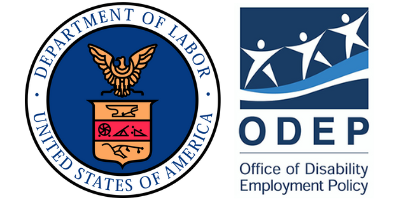
This new blog builds on ODEP’s blog last month that illustrated the employment of people with disabilities as a whole in skilled trades. Similar to the previous blog, ODEP Senior Economist David Rosenblum and ODEP Data Scientist Alexandra Ruth used a variety of charts, tables, and graphs in this week’s blog to illustrate data. In addition, a report last week by the U.S. Bureau of Labor Statistics found that employment of workers with disabilities increased in 2022.)
Looking Ahead:
Upcoming Date Reminders
December 2022: U.S. DOL WHD’s (now overdue) target date to publish a Notice of Proposed Rulemaking to Analyze Public Comments on its proposed rule regarding Nondisplacement of Qualified Workers Under Service Contracts (RIN: 1235-AA42)
December 2022: U.S. OSHA’s (now overdue) target date to publish its Final Rule on Occupational Exposure to COVID-19 in Healthcare Settings (RIN: 1218-AD36) (OSHA submitted this Final Rule to OMB on December 7, 2022)
December 2022: U.S. DOL’s OASAM’s (now overdue) target date to publish Proposed Rule on “Revision of the Regulations Implementing Section 188 of the Workforce Innovation and Opportunity Act (WIOA) to Clarify Nondiscrimination and Equal Opportunity Requirements and Obligations Related to Sex” (RIN: 1291-AA44)
February 2023: U.S. DOL WHD’s target date (now overdue) for its Final Rule on Updating the Davis-Bacon and Related Acts Regulations (RIN: 1235-AA40)
March 2023: OFCCP’s target date for its Notice of Proposed Rulemaking to Require Reporting of Subcontractors (RIN: 1250-AA15)
March 2023: OFCCP’s target date for its Final Rule on Pre-Enforcement Notice & Conciliation Procedures (RIN: 1250-AA14)
March 2023: OFCCP’s target date for its Final Rule on “Technical Amendments” to Update Jurisdictional Thresholds & Remove Gender Assumptive Pronouns (RIN: 1250-AA16)
Wednesday, March 1, 2023: Deadline to submit reply comments in response to initial comments on NLRB’s proposed changes to NLRA regulations (previous
February 16 deadline extended) – https://www.regulations.gov/commenton/NLRB-2022-0002-0001
Friday, March 3, 2023: Deadline for contractors to inform OFCCP that they are incorrectly included on the agency’s updated “non-objectors list” as to a reporter’s Freedom of Information Act (FOIA) request for EEO-1 consolidated Component 1 Survey data (previous February 17 deadline extended) – https://www.dol.gov/agencies/ofccp/submitter-notice-response-portal
Tuesday, March 14, 2023: Deadline to submit comments on nine federal agencies’ joint proposed rule on Partnerships with Faith-Based and Neighborhood Organizations – https://www.regulations.gov/commenton/VA-2023-VACO-0006-0001
Tuesday, March 14, 2023 (at 2 pm ET): First OMB Interagency Working Group Town Hall on Initial Proposals to Overhaul Federal Race & Ethnicity Data Collections
Friday, March 17, 2023 (at 2 pm ET): Second OMB Interagency Working Group Town Hall on Initial Proposals to Overhaul Federal Race & Ethnicity Data Collections
Saturday, March 18, 2023 (at 2 pm ET): Third OMB Interagency Working Group Town Hall on Initial Proposals to Overhaul Federal Race & Ethnicity Data Collections
Monday, March 20, 2023: Comments due on OFCCP’s proposed modifications to its complaint intake process – https://www.regulations.gov/commenton/OFCCP-2022-0005-0001
Monday, March 20, 2023: Deadline to submit comments on FTC proposal to ban employers from implementing most worker non-compete agreements – https://www.regulations.gov/commenton/FTC-2023-0007-0001
April 2023: OFCCP’s target date for its Notice of Proposed Rulemaking to “Modernize” Supply & Service Contractor Regulations (RIN: 1250-AA13)
Wednesday, April 12, 2023: Comments due on the Office of Management & Budget’s “Initial Proposals for Updating Race and Ethnicity Statistical Standards” – https://www.regulations.gov/commenton/OMB-2023-0001-0001
Wednesday, April 12 – Friday, April 14, 2023: DEAMcon23 Chicago (Register to attend and view the conference program, fill with DirectEmployers’ All-Star Line-up of federal government and private sector speakers.)
Sunday, April 30, 2023: Deadline to apply for 2023 HIRE Vets Medallion Award Program – https://www.hirevets.gov/
May 2023: U.S. DOL WHD’s target date for its Notice of Proposed Rulemaking on Defining and Delimiting the Exemptions for Executive, Administrative, Professional, Outside Sales and Computer Employees (RIN: 1235-AA39)
May 2023: U.S. DOL WHD’s target date for its Final Rule on Employee or Independent Contractor Classification Under the Fair Labor Standards Act (RIN: 1235-AA43)
August 2023: U.S. NLRB’s target date for its Final Rule on Standard for Determining Joint-Employer Status (under the NLRA) (RIN: 3142-AA21)
August 2023: U.S. NLRB’s target date for its Final Election Protection Rule (RIN: 3142-AA22)
THIS COLUMN IS MEANT TO ASSIST IN A GENERAL UNDERSTANDING OF THE CURRENT LAW AND PRACTICE RELATING TO OFCCP. IT IS NOT TO BE REGARDED AS LEGAL ADVICE. COMPANIES OR INDIVIDUALS WITH PARTICULAR QUESTIONS SHOULD SEEK ADVICE OF COUNSEL.
SUBSCRIBE.
Compliance Alerts
Compliance Tips
Week In Review (WIR)
Subscribe to receive alerts, news and updates on all things related to OFCCP compliance as it applies to federal contractors.
OFCCP Compliance Text Alerts
Get OFCCP compliance alerts on your cell phone. Text the word compliance to 55678 and confirm your subscription. Provider message and data rates may apply.


